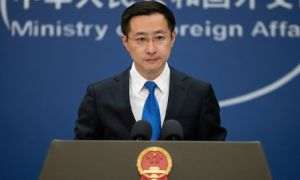A sudden abandonment of a colossal source of revenue is challenging, especially in the name of a noble ideal, particularly when massive financial interests are at stake, involving the resources of an entire region. The President of the COP28 climate summit, Sultan Al Jaber, the Minister of Foreign Affairs of the United Arab Emirates, stated that there is "no scientific evidence" supporting the need for a gradual elimination of fossil fuels to limit global warming to 1.5 degrees Celsius above pre-industrial levels. These comments have alarmed scientists and supporters of the fight against climate change, as reported by CNN. The future role of fossil fuels is one of the most controversial topics facing countries at the COP28 climate summit. While some advocate for a "gradual elimination," others call, in milder terms, for a "gradual reduction." Scientific reports have shown that these fossil fuels must be rapidly reduced to keep global warming below 1.5 degrees - the goal of the Paris Climate Agreement and a threshold beyond which scientists warn it will be more challenging for humans and ecosystems to adapt. Al Jaber made these remarks during a panel discussion on November 21, but they only came to light on Sunday in an article published by The Guardian, as well as in a video recording analyzed by CNN. Al Jaber was asked by Mary Robinson, former President of Ireland and current leader of The Elders, an independent group of global leaders, whether he would support the gradual elimination of fossil fuels. In his response, Al Jaber told Robinson, "There is no science or scenario that says gradual elimination of fossil fuels is what will get us to the 1.5 level." He expected to engage in a "sober and mature conversation" and stated that he does not "subscribe to any alarmist discussion." The Minister continued, saying that the 1.5-degree goal is the "North Star," and the gradual reduction and elimination of fossil fuels are "inevitable," but "we must be realistic, serious, and pragmatic about it." He followed up with increasingly striking responses to Robinson's persistent questioning on this point. "Please, help me, show me a roadmap for a gradual elimination of fossil fuels that allows for sustainable socio-economic development, unless you want to take the world back to caves," Al-Jaber said. Moreover, Al Jaber's presidency at the COP28 summit has been controversial. The businessman serves as the diplomatic representative of the United Arab Emirates for climate and chairs the board of his renewable energy company, but he also leads the state-owned Abu Dhabi National Oil Company (ADNOC). A spokesperson for the COP28 team commented to CNN, "This story is just another attempt to undermine the presidency's agenda, which has been clear and transparent and supported by tangible achievements of the COP president and his team." The COP president is clear that the gradual reduction and elimination of fossil fuels are inevitable, and "we must maintain the 1.5-degree Celsius target," the official added. Fossil fuels are the primary driver of the climate crisis, and as the world continues to burn oil, coal, and gas, global temperatures rise to unprecedented levels. This year has seen record-breaking global heat, leading to extreme and deadly weather events. The production of fossil fuels in 2030 is projected to be more than double what is necessary to keep global warming below 1.5 degrees Celsius, according to a recent report by several scientific institutions, including the UN Environment Programme. To reach this conclusion, the report used scenarios established by the Intergovernmental Panel on Climate Change (IPCC) and the International Energy Agency (IEA). "If the IPCC and IEA are not considered science, then I don't know what is," said Ploy Achakulwisut, a climate researcher at the Stockholm Environment Institute and one of the report's authors. She told CNN that the report concluded "that all fossil fuels must be phased out, especially if carbon dioxide removal and carbon capture and storage measures fail to expand." Carbon capture refers to a set of techniques aiming to remove carbon pollution from the air and capture what is produced by power plants and other polluting facilities. While some argue that this carbon capture will be an essential tool for reducing planet-warming pollution, others contend that these technologies are expensive, unproven on a large scale, and a distraction from policies to reduce fossil fuel use. The COP summit will conclude the first global stocktake, during which countries will evaluate their progress in climate actions.
COP28: Predictably, Summit Hosts Support Fossil Fuel Use
O.D.
English Section / 5 decembrie 2023

COP28 world climate action summit, Dubai, United Arab Emirates, 1-2 December 2023. (Photo source: https://www.consilium.europa.eu)

















































